Lawsuit Filed Against Mountaire Farms Amid Water Pollution Claims
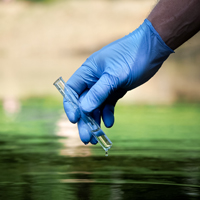 Water pollution is a serious problem and executives at the Mountaire Farms poultry processing plant will soon have to answer to the dozens of area residents who claim they suffered severe harm because of the company’s actions. A lawsuit filed by attorneys at Jacobs & Crumplar, P.A. alleges the company’s wanton, willful, and illegal disposal of toxic waste resulted in groundwater contamination that sickened residents in and around Millsboro, Delaware.
Water pollution is a serious problem and executives at the Mountaire Farms poultry processing plant will soon have to answer to the dozens of area residents who claim they suffered severe harm because of the company’s actions. A lawsuit filed by attorneys at Jacobs & Crumplar, P.A. alleges the company’s wanton, willful, and illegal disposal of toxic waste resulted in groundwater contamination that sickened residents in and around Millsboro, Delaware.
News of tainted water in the neighborhoods surrounding Mountaire Farms came as a surprise to homeowners there. In fact, most of them were not even directly informed. For some, the news came through the unexpected delivery of bottled water and a vague note.
In the time since those neighbors learned that their water might not be safe to drink, they also learned that Mountaire Farms had repeatedly violated their permits for waste disposal by spraying contaminated water on hundreds of local farm fields.
Health Effects of Contaminated Water
Many Millsboro-area children born in recent years have experienced unexplainable birth defects. Others in the area have also experienced asthma attacks, bacterial infections, stomach problems, and more. And those affected are wondering whether the other health issues they are dealing with could be related to the tainted water. They are also plagued by the fear of what could happen next. Living with the unknown when it comes to your health is, in itself, damaging to one’s peace of mind and overall well-being.
Jacobs & Crumplar, P.A. recently filed a lawsuit on behalf of more than 80 of those neighbors against the poultry giant in partnership with Nidel & Nace, PLLC, a Washington D.C.-based law firm. The lawsuit seeks compensation and punitive damages for the foul odors and water pollution they say was caused by Mountaire Farms’ reckless disposal of toxic waste.
The lawsuit focuses largely on the high level of nitrates contained in the groundwater, which is the main source of drinking water for homeowners there. Excessive nitrates in drinking water have been proven to reduce the blood’s ability to carry oxygen throughout the body. Exposure can lead to breathing problems, decreased blood pressure, cramps, and even death – and one resident has died following a severe asthma attack. The highest risk is to pregnant women and nursing mothers, whose babies are vulnerable to methemoglobinemia, which can be fatal, along with potential birth defects that may include cleft palates, brain damage, and limb deficiencies.
There is still much that is unknown regarding the contamination. The presence of fecal coliform bacteria, also found in the water, suggests the presence of other pathogens, and so ongoing medical monitoring of all nearby residents is essential. The lawsuit will address all the health issues, along with the unpleasant odors and other nuisances caused by the plant, as well as the damage to local property values.
Delaware Environmental Lawyers at Jacobs & Crumplar, P.A. Advocate for Those Harmed by Contaminated Drinking Water
If you believe you have been affected by Mountaire Farms’ contamination, or if you wish to discuss an unrelated matter, contact a Delaware environmental toxic tort lawyer at Jacobs & Crumplar, P.A. today. Contact us online or call 302-656-5445 to arrange a free consultation. We represent clients in upstate and downstate Delaware from our offices in Wilmington and Georgetown, Delaware.
Chemical Exposure Injuries
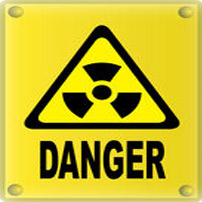 Individuals can be exposed to dangerous chemicals in a variety of ways including workplace exposure. Some of the more common toxic tort cases involve exposure to toxins such as black mold, asbestos, lead paint, and workplace chemicals. Toxic tort cases may result from contamination caused by the dumping of chemical waste into soil or groundwater, the airborne release of poisonous gases, or defective medication manufacturing. Unlike injuries suffered in a car accident or other types of personal injury tort cases, the medical injuries resulting from toxic chemical exposure may not be as visible and may not occur immediately following the exposure.
Individuals can be exposed to dangerous chemicals in a variety of ways including workplace exposure. Some of the more common toxic tort cases involve exposure to toxins such as black mold, asbestos, lead paint, and workplace chemicals. Toxic tort cases may result from contamination caused by the dumping of chemical waste into soil or groundwater, the airborne release of poisonous gases, or defective medication manufacturing. Unlike injuries suffered in a car accident or other types of personal injury tort cases, the medical injuries resulting from toxic chemical exposure may not be as visible and may not occur immediately following the exposure.
Bringing a Toxic Tort Case
Individuals who have sustained injuries resulting from toxic exposure may be entitled to compensation from multiple responsible parties. If an individual can demonstrate injuries caused by a breach of a legal duty, they may be entitled to substantial compensation. A breach of legal duty can occur when a party acts negligently, violates environmental regulations, or creates a defect in a manufactured product. In addition to the party responsible for contaminating the environment with the toxin, such as the company that dumped the toxic waste, the landlord that failed to remedy a black mold situation, or the manufacturers and distributors of the toxic substance may also owe compensation to injured individuals. If toxic exposure occurs at work, the individual also may seek compensation under the Delaware Workers’ Compensation system.
Toxic tort cases must be filed within the statute of limitations, a set period after the exposure or injury occurs. In toxic tort matters, this may be more difficult to determine, as an injured individual may not realize that they have sustained injuries right away. Individuals may not develop health problems, including diseases like cancer or mesothelioma, for many years after the initial chemical exposure. Many states have a special discovery rule to allow injured individuals to file their toxic tort cases within a reasonable time after the injury is discovered or should have been discovered.
The Causation Problem
One of the most significant obstacles in bringing a toxic tort case is proving that the individual’s injuries were caused by the toxic chemical exposure. Injured individuals must show that the chemical exposure was the immediate and direct cause of their health problems. This can become difficult with certain medical conditions, including cancer or respiratory conditions, which often have multiple simultaneous factors leading to their development. For this reason, it is critical that individuals and families of those harmed by exposure to toxins see an experienced attorney to handle their toxic tort claim.
Wilmington Toxic Tort Lawyers at Jacobs & Crumplar, P.A. Advocate for Those Harmed by Chemical Exposure
Given the complications that often accompany a toxic tort matter, including issues related to the statute of limitations and causation, injured individuals should seek the counsel of an experienced Wilmington toxic tort lawyer to obtain the maximum amount of compensation for their injuries. With offices conveniently located in Wilmington and Georgetown, Delaware, attorneys at Jacobs & Crumplar, P.A. are ready to assist individuals who have suffered health problems due to chemical exposure. To schedule your free confidential consultation today, call 302-656-5445 or contact us online. We represent clients throughout Delaware, including those in New Castle County, Kent County, and Sussex County.
Asbestos Found in Makeup Marketed to Children
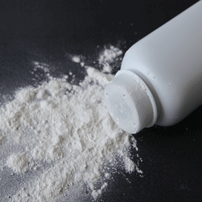 The non-profit consumer watchdog group Unites States Public Interest Research Group (PIRG), tested makeup products containing talc and found three that contained high levels of asbestos. All three products came from the Illinois-based retailer Claire’s. Claire’s sells fashion accessories and jewelry mainly to girls and young women nationwide.
The non-profit consumer watchdog group Unites States Public Interest Research Group (PIRG), tested makeup products containing talc and found three that contained high levels of asbestos. All three products came from the Illinois-based retailer Claire’s. Claire’s sells fashion accessories and jewelry mainly to girls and young women nationwide.
Talc is a common ingredient in many cosmetic products and can contain asbestos. Asbestos is a highly toxic substance that has been banned from many commercial uses, because exposure can lead to lung cancer or mesothelioma. Using it on skin over time increases the risk of skin cancer. There is no amount of asbestos exposure that is considered to be safe.
The products affected were Claire’s shadow and highlighting kit, compact powder, and the contour palette. PIRG called on the FDA to perform regular testing of cosmetics for harmful chemicals, and further said Claire’s should pull the items from sale immediately. A statement from Claire’s categorically denied the accuracy of the testing done by PIRG, saying the methods used are obsolete and unreliable.
Concerned Mother Sparks Recall
In December, Claire’s voluntarily recalled nine makeup products after a lab in North Carolina showed positive tests for asbestos in those products. A concerned mother had sent her child’s glitter makeup kit from Claire’s for testing. She was shocked to find that the makeup marketed to children contained tremolite asbestos. To determine the extent of the problem, she and another bought 17 different Claire’s makeup products from nine different states and found that every single one contained tremolite asbestos.
The tests were conducted at Scientific Analytical Institute by a scientist who expressed concern that the products had been bought within two weeks of the testing. The scientist said this meant that it was unavoidable that other children had also been potentially exposed to the toxic substance.
In January 2017, Claire’s announced that new testing from two certified independent labs confirmed that their products are free of asbestos and completely safe. As of March 2018, however, debate about the safety of these products remained ongoing.
According to the executive director of Massachusetts-based PIRG, expert opinion holds that nothing that contains asbestos should be put on the body. Asbestos-related diseases generally develop slowly, over long periods of time, after particles of the substance are inhaled and lodge in the respiratory system. The average latency period for mesothelioma from exposure to diagnosis is 35 to 40 years.
Compensation for Asbestos-Related Diseases
There are several avenues of compensation available to those who have suffered harm from exposure to toxic chemicals or substances. These include
- Workers’ Compensation for workers who develop an occupational illness
- Toxic tort claims against parties who were obligated to protect others from hazardous substances
- Product liability claims against the manufacturers of products containing harmful substances
Delaware Asbestos Lawyers at Jacobs & Crumplar, P.A. Advocate for Consumers Harmed by Exposure to Toxins
Contact Jacobs & Crumplar, P.A. to speak to an experienced Delaware asbestos lawyer if you may have been exposed to asbestos. For more than 30 years, our firm has been dedicated to helping injured people. Call us at 302-656-5445 or complete our online contact form to schedule a consultation in our Wilmington or Georgetown offices. We represent clients throughout Delaware including Dover, New Castle County, Kent County, and Sussex County.
EPA Rule Change and Teens’ Chemical Exposure Risk
 Workers under the age of 18 may be at increased risk of toxic chemical exposure if the U.S. Environmental Protection Agency (EPA) succeeds in changing the Agricultural Worker Protection Standard and the Certification of Pesticide Applicators Rule, regulations designed to keep underage workers safe. The EPA filed notices of intent to change or eliminate the rules despite warnings from medical experts.
Workers under the age of 18 may be at increased risk of toxic chemical exposure if the U.S. Environmental Protection Agency (EPA) succeeds in changing the Agricultural Worker Protection Standard and the Certification of Pesticide Applicators Rule, regulations designed to keep underage workers safe. The EPA filed notices of intent to change or eliminate the rules despite warnings from medical experts.
The Obama administration adopted one of the rules in 2015, after doctors lobbied for more protections for underage farmworkers. Medical experts cautioned against allowing children to handle certain pesticides because of their associated risk of cancer or effects on brain development. The EPA lists thousands of “restricted use” products that are too toxic for public use such as arsenic, methyl bromide and sodium cyanide. Restricted use pesticides are used only on commercial farms and are not available for sale to the public due to their extremely high levels of toxicity.
Young People at Higher Risk
The EPA has proposed changes to this rule as well the to the rule that prohibits minors from getting the necessary certifications to dispense toxic pesticides. This is cause for concern because children are disproportionately harmed by contaminants. The Centers for Disease Control and Prevention (CDC) explains that children’s organ systems are still developing, making them more susceptible to pollutants than adults whose organ systems are already developed. Pollutants can have serious, long-lasting consequences for children and can even hinder or change their development.
The CDC cites lead as an example of how children are affected differently than adults. Lead does have detrimental effects on adults’ nervous systems, though its effects are extremely pronounced even in small amounts when it comes to children’s intellectual development. The American Academy of Pediatrics also listed several concerns with underage children handling pesticides, including the dangers posed to their brains and reproductive systems.
Despite these warnings, the EPA has placed two notices of proposed rulemaking in the federal register. The agency stated that it was reviewing the regulations as part of the President’s Regulatory Reform Agenda, which encourages critical review of rules that may need to be repealed, modified or replaced. A former EPA official believes that this is not one of the rules that should be amended or eliminated. He states that there is a strong likelihood that more people will get sick once these changes go into effect.
Critics of the proposed change also point out that many for-hire farmworker employees are migrants who do not speak English and are not yet mature enough to make informed decisions about handling dangerous pesticides. They are also more likely to mishandle them and as the former EPA worker stated, sometimes even a teaspoon can be deadly. The proposed changes to the regulations have not yet gone into effect and it remains to be seen what the outcome of the federal rulemaking process in this case will be.
Wilmington Chemical Exposure Lawyers at Jacobs & Crumplar, P.A. Provide Experienced Representation in Toxic Tort Cases
If you or a loved one contracted an illness after exposure to toxic materials or chemicals, contact the Wilmington chemical exposure lawyers at Jacobs & Crumplar, P.A. From our offices in Wilmington and Georgetown, our skilled and experienced attorneys will fight to obtain the justice and compensation you deserve. We represent clients throughout New Castle County, Kent County, and Sussex County, Delaware. For a free and confidential consultation, contact us online or call us at 302-656-5445 today.
There’s Injustice in the Water in Delaware
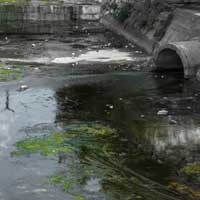 When taking a drink of water from the kitchen faucet, or filling the tub for a bath, few people stop to think about the cleanliness of the water. But residents in the Millsboro area have to think about it every single day. That’s because it was recently discovered that the nearby Mountaire Farms poultry processing plant was the cause of serious water contamination, and that could have a very damaging impact on residents’ health.
When taking a drink of water from the kitchen faucet, or filling the tub for a bath, few people stop to think about the cleanliness of the water. But residents in the Millsboro area have to think about it every single day. That’s because it was recently discovered that the nearby Mountaire Farms poultry processing plant was the cause of serious water contamination, and that could have a very damaging impact on residents’ health.
In Blades, Delaware – less than 20 miles away – the response to this news was immediate. Within a day neighbors were notified, and the Delaware National Guard was mobilized to provide them with access to safe, clean water. Governor John Carney was there to help distribute bottled water to residents. For people living in the Millsboro area, however, the response was quite different.
Residents in the Millsboro area did not learn of the contamination for months. Even after the announcement, it was yet another month before water supplies were delivered to their front steps, and no explanation was provided.
It turned out that there were potentially dangerous levels of nitrate and fecal coliform in the groundwater from the Montaire plant in both communities. The chicken giant had been spraying highly contaminated waste on hundreds of acres of farmland, and had not kept groundwater pollution levels in check. This went on for an unknown length of time – perhaps decades – and affected the surrounding area.
At least 25 homes in the Millsboro area were found to have nitrate levels significantly exceeding federal drinking water standards. The Delaware Department of Natural Resources and Environmental Control (DNREC) issued a citation to Mountaire Farms for polluting the groundwater near its plant and Mountaire admitted to wastewater violations.
Response Inequities
Both Blades and Millsboro area residents faced the same problem: contamination of the water they depended on every day. So why was the response so different? There may be multiple reasons.
The unincorporated Millsboro area has both an economic and geographic vulnerability. Many believe that race and poverty may play a significant role as well. The median household income there is nearly $20,000 below the state average, and there is a poverty rate of 15.9 percent, which is higher than both the state and county average. A lack of political and economic power creates an atmosphere for environmental injustice.
The elected officials that represent the Millsboro area have admitted that Mountaire was culpable. However, they have also recently stated that Mountaire is a substantial employer, and a loss of the company would have a dramatic impact on the economy and agriculture. In other words, big corporations have great political influence.
Although the chemicals found in the water of the two communities vary, residents of both contaminated sites could experience adverse health effects – especially children and pregnant women. The legal team at Jacobs & Crumplar, P.A. is working in partnership with Washington-based Nidel & Nace, PLLC to help the residents of the Millsboro area.
To hear the audio from a recorded interview about the case, click here.
Delaware Environmental & Toxic Tort Lawyers at Jacobs & Crumplar, P.A. Advocate for Those Affected by Contaminated Water in Delaware
The Delaware environmental lawyers at Jacobs & Crumplar, P.A. are committed to helping those who have been harmed by environmental contaminants. To learn more about our services, contact us online or call 302-656-5445 or 800-355-1818 today to arrange a free consultation. We have offices in Wilmington and Georgetown to represent individuals and families throughout Delaware.
Mountaire Water Contamination Survey
 The Delaware toxic tort lawyers at Jacobs & Crumplar, P.A. have partnered with the law firm of Nidel & Nace, P.L.L.C. to investigate claims of dangerous water contamination in the Millsboro area. Mountaire Farms is the suspected source of the contamination. All individuals over the age of majority who are concerned about whether their drinking water has been affected, and want to know what to do next, are urged take part in a brief survey by clicking here.
The Delaware toxic tort lawyers at Jacobs & Crumplar, P.A. have partnered with the law firm of Nidel & Nace, P.L.L.C. to investigate claims of dangerous water contamination in the Millsboro area. Mountaire Farms is the suspected source of the contamination. All individuals over the age of majority who are concerned about whether their drinking water has been affected, and want to know what to do next, are urged take part in a brief survey by clicking here.
The Delaware toxic tort lawyers at Jacobs & Crumplar, P.A. are committed to helping those who have been harmed by environmental contaminants. To learn more about our services, contact us online or call 302-656-5445 today to arrange a confidential consultation. We have offices in Wilmington and Georgetown to represent individuals and families throughout the state, including those in Dover, Delaware.
Dangerous Drinking Water Near Mountaire Farms
 As reported in The News Journal and other Delaware media repeatedly in recent weeks, homeowners surrounding the area of Mountaire Farm’s Millsboro, Delaware poultry processing plant have been warned against drinking their well water due to potentially dangerous levels of nitrate and fecal coliform in the groundwater from the plant. At least 25 homes have been found to have levels of nitrate significantly in excess of federal drinking water standards. DNREC issued a citation to Mountaire Farms for polluting the groundwater near its plant and Mountaire has admitted to wastewater violations. Residents and neighbors of this plant are understandably concerned about their health and the effects of this pollution.
As reported in The News Journal and other Delaware media repeatedly in recent weeks, homeowners surrounding the area of Mountaire Farm’s Millsboro, Delaware poultry processing plant have been warned against drinking their well water due to potentially dangerous levels of nitrate and fecal coliform in the groundwater from the plant. At least 25 homes have been found to have levels of nitrate significantly in excess of federal drinking water standards. DNREC issued a citation to Mountaire Farms for polluting the groundwater near its plant and Mountaire has admitted to wastewater violations. Residents and neighbors of this plant are understandably concerned about their health and the effects of this pollution.
Jacobs & Crumplar, who have successfully litigated environmental claims in Delaware, and co – counsel Nidel & Nace, who have broad and unique successful experience in environmental claims, are currently investigating this matter on behalf of their clients and request that anyone with information about this come forward to assist them in obtaining evidence.
To speak to an experienced Delaware toxic tort lawyer at Jacobs & Crumplar, P.A. about a potential claim, contact us online or call 302-656-5445 today. From our offices in Wilmington and Georgetown, Delaware, we represent clients in upstate and downstate Delaware.
Liability for Toxic Mold
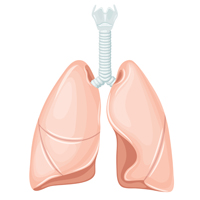 Exposure to the spores of certain types of mold can cause serious health problems. People with existing health issues or compromised immune systems are especially vulnerable to these dangerous molds. In many cases, toxic mold exposure could have been and should have been prevented.
Exposure to the spores of certain types of mold can cause serious health problems. People with existing health issues or compromised immune systems are especially vulnerable to these dangerous molds. In many cases, toxic mold exposure could have been and should have been prevented.
In these cases, victims of exposure may be entitled to recover damages for their illnesses through a toxic tort claim. Determining who is liable for dangerous mold exposure can be challenging, but there are some general guidelines regarding how toxic tort cases are handled.
Toxic Mold Syndrome
Most forms of mold are not dangerous to humans or animals. These mold forms are found everywhere. They enter our homes through open doors, windows, and vents; and travel through the environment by attaching to people, animals, clothing, and other objects. Mold spores can typically grow in any place that has moisture.
However, some molds produce a dangerous poison called mycotoxin. When humans inhale mycotoxin spores, they can become severely ill. Toxic Mold Syndrome (TMS) is an umbrella term used to describe a variety of symptoms and illnesses caused by mycotoxin exposure. Toxic Mold Syndrome can cause: itchy or watery eyes, throat irritation, fever, nausea, mental fog, and shortness of breath.
Determining Liability for Toxic Mold Exposure
People who are exposed to toxic mold in their home or place of business must establish who is responsible before filing a lawsuit. In some cases, there is one defendant; in others there are several. Property owners with mold in their homes should first review their homeowners’ insurance policy. Many policies cover mold infestation that is caused by a bad event, or “peril”, such as a fire or storm damage.
Realtors and prior owners can be held responsible if it is proven they were aware of its existence and failed to remediate it, or at least disclose it to buyers. In some cases, home inspectors who fail to detect toxic mold may also be held responsible for mold-related illness.
Engineers, architects, and contractors who design or build structures that develop toxic mold growth through faulty design or poor construction can be also be named defendants in toxic tort cases. Condominium residents exposed to toxic mold can hold their association liable for exposure, especially when the mold is located in a common area like a pool or gym.
Many defendants neglect to remove traces of mold because it is a complicated and often costly process. In some cases of severe contamination, entire structures must be completely removed and rebuilt. Buildings with structural issues like excessive humidity or leaks need to be repaired to prevent re-contamination. Children and seniors are highly vulnerable to the illnesses caused by exposure to toxic mold. Builders, owners, and landlords who fail to remove toxic mold and protect residents should be held accountable.
Wilmington Toxic Tort Lawyers at Jacobs & Crumplar, P.A. Hold Negligent Property Owners Responsible
Attorneys at Jacobs & Crumplar, P.A. are skilled in proving that a plaintiff’s illness was caused by mold exposure, and that a defendant was negligent in preventing the exposure. To discuss your potential claim with a seasoned Wilmington toxic tort lawyer, call 302-656-5445 today complete our online contact form. We offer free consultations at our offices in Wilmington and Georgetown, and serve clients throughout the state, including those in Dover, Delaware.

